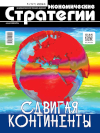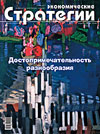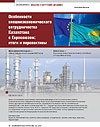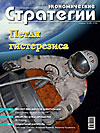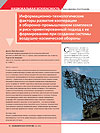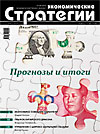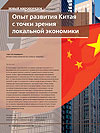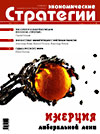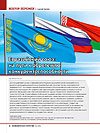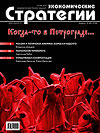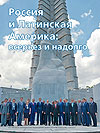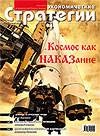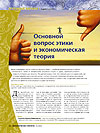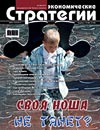Cooperative Economy — Back to the Future
DOI: 10.33917/es-5.197.2024.96-105
The authors have examined historical, social and economic foundations of the previously presented model of a cooperative economy, presented arguments in favour of a cooperative economy as civilizationally organic economic model for Russia.
References:
1. Pereslegin S.B. Tsivilizatsii v lyudyakh i kodakh [Civilizations in People and Codes]. Izborskiy klub, 2021, 17 fevralya, available at: https://izborsk-club.ru/20672
2. Toshchenko Zh.T. Prekariat. Ot protoklassa k novomu klassu [Precariat: From Protoclass to New Class]. Institut sotsiologii FNISTs RAN, RGGU, Moscow, Nauka, 2018, 346 p.
3. Stending G. Prekariat: novyy opasnyy klass [The Precariat: A New Dangerous Class]. Moscow, Ad Marginem Press, 2011.
4. Galushka A.S., Niyazmetov A.K., Okulov M.O. Kristall rosta. K russkomu ekonomicheskomu chudu [Crystal of Growth. Towards the Russian Economic Miracle]. Moscow, 2021.
5. Spitsyn E.Yu. Khrushchevskaya slyakot’. Sovetskaya derzhava v 1953–1964 gody [Khrushchev’s Slush. The Soviet State in 1953-1964]. Kontseptual, 2019.
6. Rezolyutsiya XX s”ezda KPSS. 24 fevralya 1956 g. Po otchetnomu dokladu TsK KPSS [Resolution of the 20th Congress of the CPSU. February 24, 1956. According to the Report of the Central Committee of the CPSU]. Elektronnaya biblioteka istoricheskikh dokumentov, available at: https://docs.historyrussia.org/ru/nodes/355234- rezolyutsiya-xx-sezda-kpss-24-fevralya-1956-g-po-otchetnomu-dokladu-tsentralnogo-komiteta-kpss-izvlechenie
7. Konstitutsiya Rossiyskoy Federatsii [Constitution of the Russian Federation]. Ofitsial’nyy internet-portal pravovoy informatsii. St. 7, p. 1, available at: http://pravo.gov.ru/proxy/ips/?docbody=&nd=102027595
8. Grazhdanskiy kodeks Rossiyskoy Federatsii [Civil Code of the Russian Federation]. Konsul’tant. St. 1, available at: https://www.consultant.ru/ document/cons_doc_LAW_5142/
9. Marks K. Kapital [Capital]. Internet archive, vol. 3, part 1, available at: https://archive.org/details/1951-iiiKarl_Marx_1951_Kapital_Tom_3
10. Galimova L.N. Osobennosti mentaliteta kuptsa-staroobryadtsa [Peculiarities of the Mentality of the Old Believer Merchant]. Izvestiya vysshikh uchebnykh zavedeniy. Povolzhskiy region. Gumanitarnye nauki, 2011, no 3(19), pp. 26–33.
11. Uest Dzh.L. Staroobryadtsy i predprinimatel’skaya kul’tura v tsarskoy Rossii: Istoricheskie khroniki [Old Believers and Entrepreneurial Culture in Tsarist Russia: Historical Chronicles]. Cyberleninka, available at: https://cyberleninka.ru/article/n/staroobryadtsy-i-predprinimatelskaya-kultura-vtsarskoy-rossii


